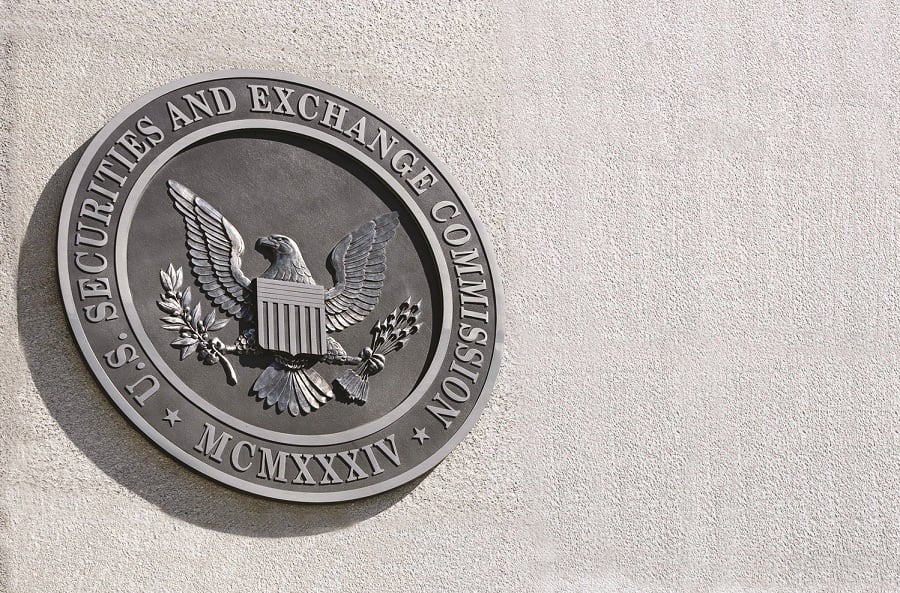

The Securities and Exchange Commission moved Wednesday night to loosen some rules governing business development companies so those companies can provide more financing for modest-sized businesses devastated by the COVID-19 outbreak.
Under the order, the SEC would ease calculations that determine a BDC’s asset coverage ratios, giving it additional flexibility to issue and sell senior securities and make investments in small- and mid-size businesses.
A BDC would have to obtain the approval of its board for each securities offering, which also would have to be independently evaluated. The regulatory relief would last through the end of the year.
While Congress and the Federal Reserve have made hundreds of billions of dollars in loans available to small businesses, the SEC said BDCs can help.
“Many small and medium-sized businesses across the country are struggling due to the effect of COVID-19, and today’s temporary, targeted action will enable BDCs to provide their businesses with additional financial support during these times,” SEC Chairman Jay Clayton said in a statement. “The method for calculating the level of permitted financing and the other important conditions included in the order are designed to ensure that this temporary relief will both protect and benefit investors in the BDCs.”
A BDC is a type of close-end fund that finances start-up companies that may not have access to capital through banks and other means. They are registered with the SEC, but also can be risky alternative investments.
They may be well suited, though, to jump into the fray to help the struggling small business sector.
“We appreciate the SEC’s effort to recognize the role that BDCs play,” said Anya Coverman, senior vice president and general counsel at the Institute for Portfolio Alternatives. “They’re even more important as a source of lending for middle-market companies in today’s environment.”
The relief the SEC granted would allow BDCs to use equity valuations from the end of last year, rather than their current prices in depressed markets, to calculate their asset coverage ratios and give them more operating latitude.
“It acknowledges that some in the BDC industry need flexibility right now to support their portfolio companies, which means [supporting] U.S. jobs,” said Cynthia Krus, a partner at Eversheds Sutherland. “These are the people who know how to do this. The fact that the SEC listened to the industry was significant. It acknowledges the importance and growth of the industry.”
Streamlining registration
In a separate action on Wednesday afternoon, the SEC approved, 3-1, streamlining offering, communications and registration rules for BDCs. The rulemaking fulfilled congressional mandates to harmonize BDC requirements with those of operating companies. It was the first rulemaking the SEC has undertaken since the coronavirus pandemic forced the agency to work from home in mid-March.
SEC member Allison Herren Lee voted against the rule. She objected to both its timing and substance.
She said the SEC only should take actions that relate directly to the coronavirus outbreak. She also said the BDC changes could harm investors.
”In fact, the changes adopted today actually drop material disclosure requirements that were included in the proposal a year ago, and roll back important investor protection features,” Lee said at an SEC open meeting. “We are reducing protections in the midst of a crisis that has caused staggering losses for fund investors, with no clear idea when such losses may abate.”
Krus said investors will still be able to understand BDCs even after the SEC’s reforms.
“Clearly, it is an alternative product, but there is a lot of information available,” Krus said. “I don’t think the amount of information was cut back. It will be presented in a different way. There is a strong disclosure process and review at the SEC.”

Relationships are key to our business but advisors are often slow to engage in specific activities designed to foster them.

Whichever path you go down, act now while you're still in control.

Pro-bitcoin professionals, however, say the cryptocurrency has ushered in change.

“LPL has evolved significantly over the last decade and still wants to scale up,” says one industry executive.

Survey findings from the Nationwide Retirement Institute offers pearls of planning wisdom from 60- to 65-year-olds, as well as insights into concerns.
Streamline your outreach with Aidentified's AI-driven solutions
This season’s market volatility: Positioning for rate relief, income growth and the AI rebound
